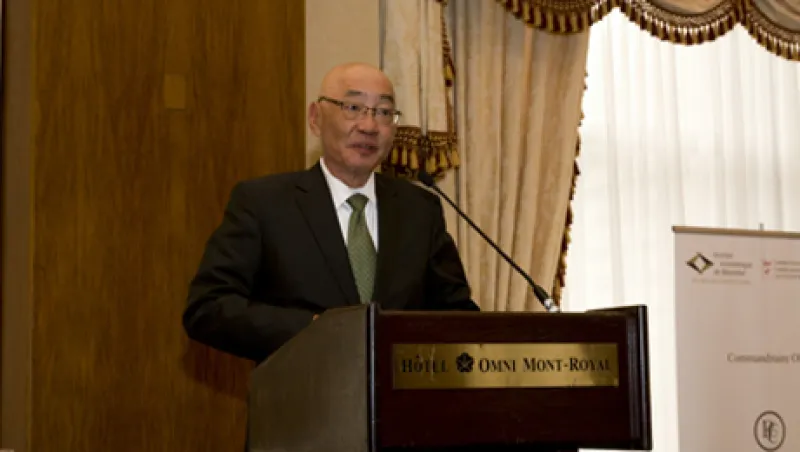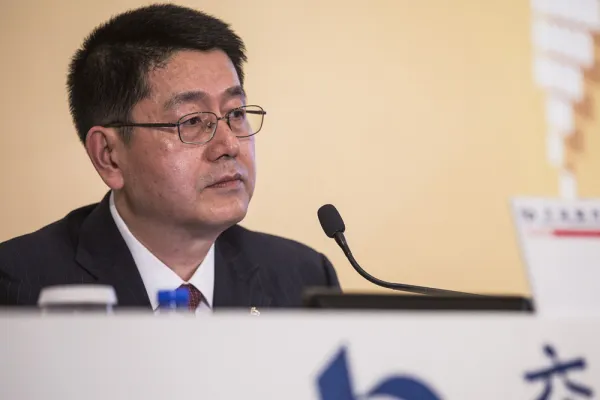Felix P. Chee is an interesting guy. A Canadian of Chinese origin and a veteran of the financial services industry, Mr. Chee was ‘called to service’ by Gao Xiqing in 2008 to come to China and help build the nascent China Investment Corporation. As he put it, it was a once in a lifetime opportunity: “Not many people get to be part of a $200-billion startup.” That’s true. And that’s why he left his family in Oakville and moved to Beijing.
Later, in 2009, Mr. Chee facilitated the big CIC investment in Teck Resources. And it wasn’t easy to pull off. As he explains: “The takeover negotiations were 20 per cent [about] price and 80 per cent how to deal with China Inc.” In other words, Mr. Chee had to play the role of diplomat as much as investor. And, apparently, he played both roles quite well: The investment successfully closed, and the $1.5 billion transaction, which gave the CIC 17% of Teck, soon thereafter quadrupled in value.
So let’s sum up for a second: Mr. Chee left his family (and his new granddaughter) in Canada to come to China to help the CIC set up. And, after doing that, he returned home only to orchestrate a transaction, thanks to some careful diplomacy, that eventually netted the Chinese SWF $4 billion in profits.
So whom do you think the CIC came to when it decided it wanted to set up an office in Toronto? Mr. Chee. (In fact, I’d be willing to wager that the CIC’s reason for setting up its first office in Toronto was as much about Mr. Chee as it was about Canada.)
Today Mr. Chee is the Chief Representative of the CIC in Toronto, and he is also a ‘Special Advisor’ to the Chief Information Officer. As he puts it, he has two remaining objectives for his time at the CIC: 1) To find good investments in Canadian resources, infrastructure and real estate; and 2) To dispel Western fears about the CIC being a geopolitical tool of the Communist Party.
When it comes to the latter point, Mr. Chee has been quite active. He recently published a paper in the CFA Institute’s Conference Proceedings Quarterly entitled “Portfolio Construction and Risk Management for Sovereign Wealth Funds.” Here are some relevant blurbs from Mr. Chee:
“SWFs are about value investing. They need to leverage their size to invest in things others cannot. They cannot follow the pension endowment model. And finally, because of the politics, public relations and good relationships with regulators are critical. “Two fundamental principles guide CIC’s investments. First, CIC will not seek control. Rather, CIC takes a significant minority position and will not go for a hostile takeover. Second, the objective is purely to seek good returns. There are two additional criteria that will make investments more attractive. First, CIC is looking for a strategic element relevant to China, particularly investments in the resource sector, in oil and gas, and perhaps in infrastructure. The second criterion is whether the transaction can be structured in such a way that it leaves a positive impression of CIC and of China. This last criterion is aimed as dispelling perceptions of a ‘China, Inc.’” “In terms of investment, all decisions at CIC are made by an investment committee. There are 10 voting members who represent department heads and some management. Everything has to be formally voted on for a decision to be made, and the voters all have equal weight. If one vote is a no, the deal does not go through; interestingly, the chair of the meeting has developed a process to ascertain when a no vote is likely and will politely suggest that the matter not be voted on. The issues that have been discussed are taken into consideration if the issue is to be brought back again. It is a very democratic process for making investment decisions.” Some interesting stuff there. First and foremost, the CIC wants returns. This much we know. Then, it likes certain strategic elements in its investments (e.g., resources). That much we had a sense for as well. In addition, it wants to make a good impression on local communities. That’s interesting; I didn’t know that was part of the investment strategy. Finally, it has an investment committee where a single negative vote from one Board member can veto an investment. That’s a rather onerous burden. Anyway, that’s the story of Mr. Chee and the CIC. If you’d like to hear more, readers can go see Mr. Chee speak about his experiences on March 5 at the Toronto CFA.






